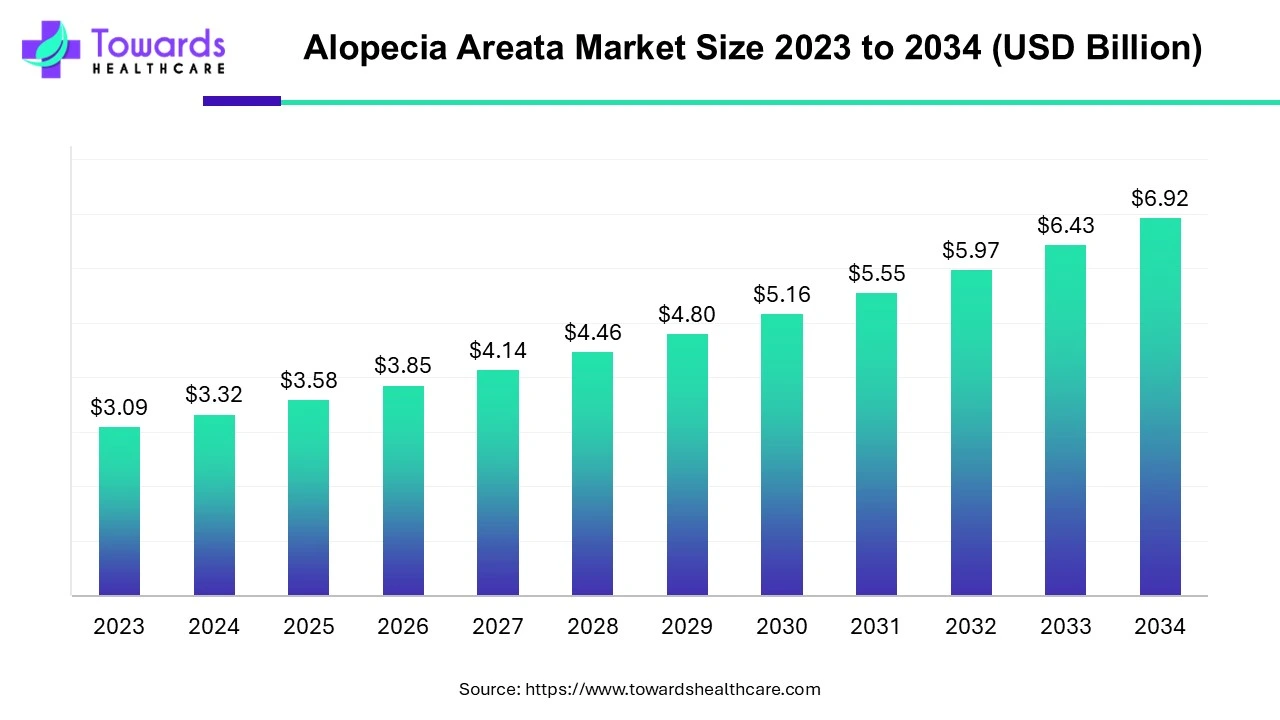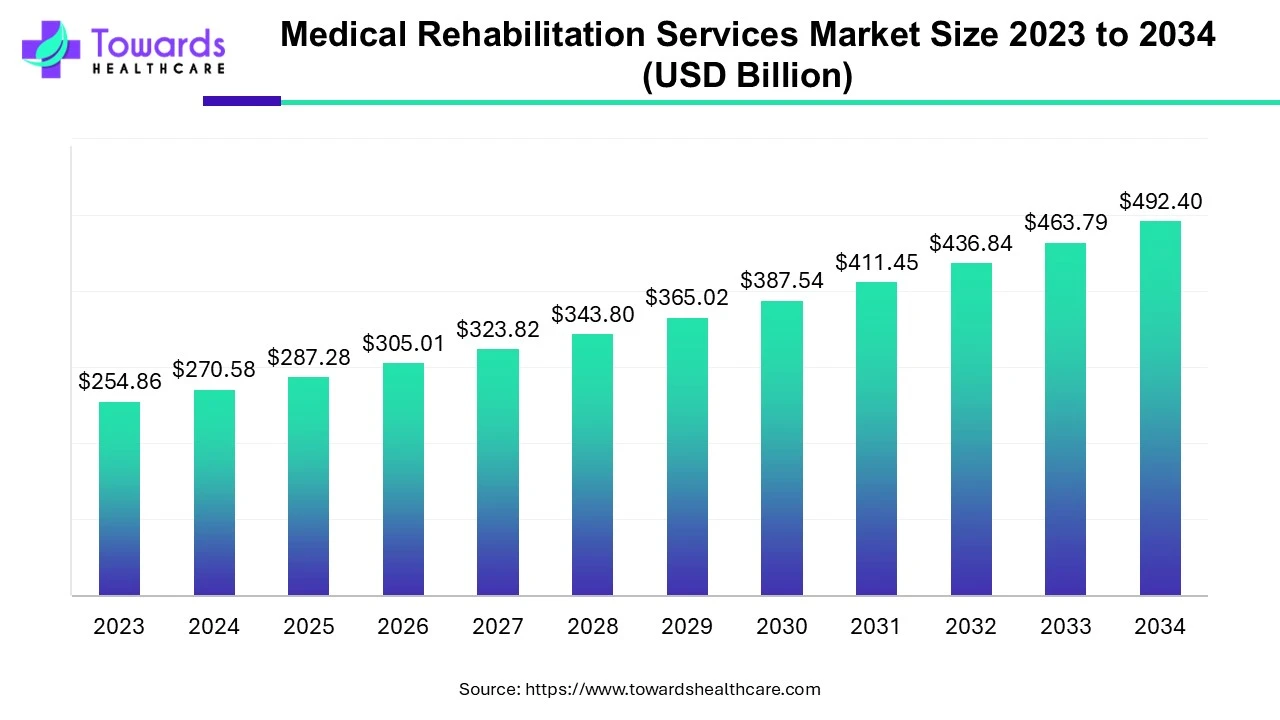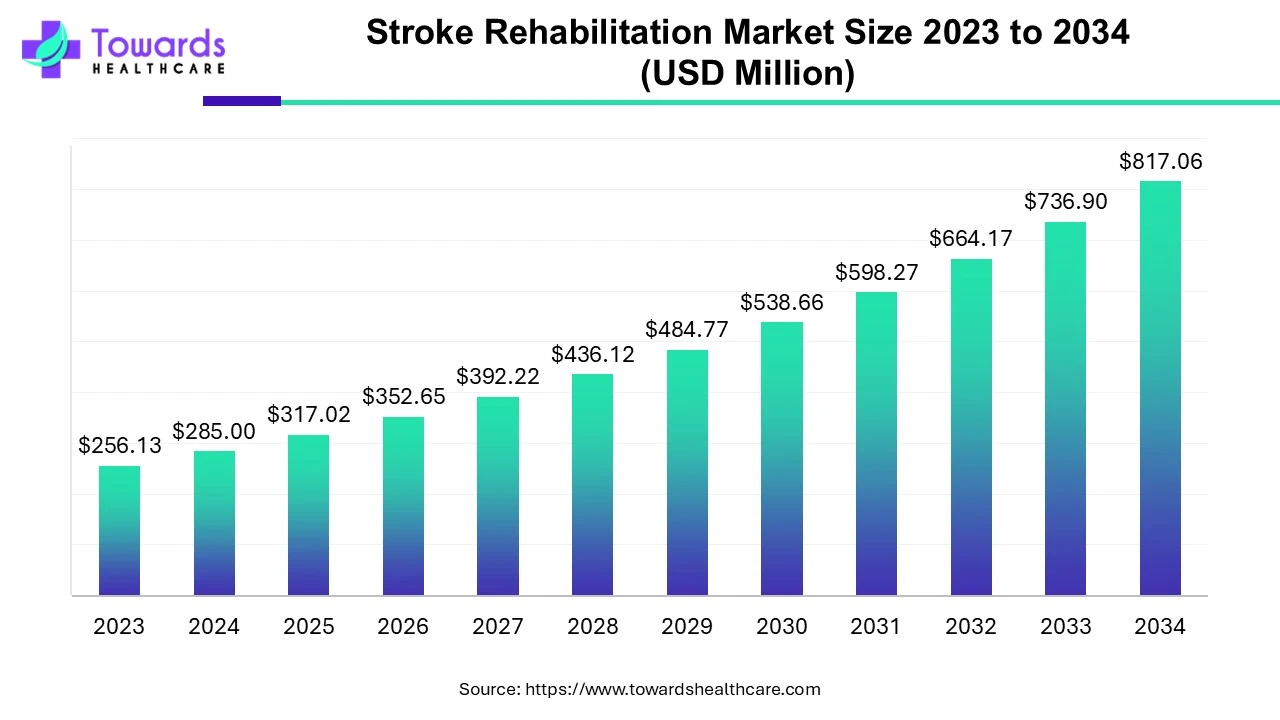Table of Contents
ToggleAlopecia Areata Market Growth, Trends and Key Players
The global market for alopecia areata is valued at USD 3.32 billion in 2024 and is projected to reach USD 6.92 billion by 2034, growing at a compound annual growth rate (CAGR) of 7.6% over the next decade.

Download statistics of this report @ https://www.towardshealthcare.com/download-statistics/5133
Alopecia Areata Market Trends
The alopecia areata market is experiencing significant growth driven by several key trends:
- Increasing Prevalence: The rise in the number of people diagnosed with alopecia areata, influenced by factors like stress, autoimmune disorders, and environmental influences, is boosting demand for treatment options.
- Advancements in Treatment: Ongoing research and development have led to the emergence of more effective therapies, such as JAK inhibitors, corticosteroids, and biologics, offering new hope for patients.
- Personalized Medicine: A shift toward personalized treatments tailored to the genetic and immune profile of patients is enhancing treatment efficacy and reducing side effects.
- Rising Awareness: Growing awareness about the condition and its psychological impact is driving demand for treatments and increasing support for patients.
- Shift Toward Biologics: Biologic therapies are gaining popularity due to their ability to target specific mechanisms involved in alopecia areata, offering more targeted and effective treatment options.
- Emerging Markets: The market is expanding beyond developed regions, with increasing adoption of treatments in emerging markets, spurred by improving healthcare infrastructure and rising disposable incomes.
Harnessing AI to Transform the Alopecia Areata Market
Artificial Intelligence (AI) is set to revolutionize the alopecia areata market by improving diagnosis, treatment, and research. With technologies like machine learning and deep learning, AI can analyze medical images and patient data with precision, enabling early and accurate detection of alopecia areata. Early identification of the condition allows for quicker intervention, which can lead to better patient outcomes. Additionally, AI-powered predictive analytics can pinpoint individuals at higher risk of developing alopecia areata, allowing for preventative treatment strategies.
In research and drug development, AI speeds up the discovery of new treatment targets and helps streamline clinical trial designs, cutting costs and reducing the time it takes to bring new therapies to market. AI also plays a key role in personalized medicine, offering treatment plans customized to an individual’s genetic makeup and lifestyle, which enhances treatment effectiveness and patient satisfaction. Moreover, AI-driven platforms are improving patient engagement by providing real-time monitoring and feedback, which helps ensure patients stick to their treatment regimens.
As AI continues to advance, it is set to make significant improvements in patient care, research efficiency, and market growth, ultimately improving the quality of life for individuals affected by alopecia areata.
Understanding Different Types of Alopecia and Their Impacts
Alopecia areata comes in several forms, each with unique characteristics and varying degrees of severity.
- Alopecia Universalis (AU) is the most severe form, leading to total hair loss on the scalp and body.
- Alopecia Totalis (AT) affects only the scalp, causing complete hair loss.
- Alopecia Ophiasis (AO) is a rare form where hair loss starts at the back and sides of the head.
Individuals with AU and AT tend to have less chance of significant hair regrowth compared to those with the more common form of alopecia areata. Together, AU and AT make up about 7-30% of alopecia areata cases.
Our Table of Content (TOC) covers key healthcare market segments, materials, technologies and trends—helping you navigate market shifts and make informed decisions: https://www.towardshealthcare.com/table-of-content/alopecia-areata-market-sizing
Access exclusive insight now @ https://www.towardshealthcare.com/price/5133
We’ve prepared a service to support you. Please feel free to contact us at sales@towardshealthcare.com
Web: https://www.towardshealthcare.com
Visit Dental Specifics: https://www.towardsdental.com
Get the latest insights on industry segmentation with our Annual Membership: Get a Subscription
For Latest Update Follow Us: https://www.linkedin.com/company/towards-healthcare


